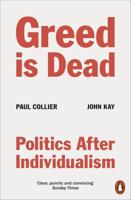Publisher's Synopsis
Excerpt from Autobiography of Thomas Jefferson, 1743-1790, Together With a Summary of the Chief Events in Jefferson's Life
Declaration of Independence is given in full, and is probably the chief authority on the matter.
In the later constitutional discussions, Jefferson placed himself with the group which contended that representation in Congress should be based upon population or on voters. He saw no reason why people should, by calling themselves a state, secure as large a representative power in the Govern ment as belonged to people. The jealousy and apprehensions Of the smaller states, such as Rhode Island and Delaware, that the Government might be entirely controlled by states like Pennsyl vania, Virginia, and New York proved, as we know, sufficient to secure an equal state representation in the Upper House of Congress. It was supposed that the evil of this disproportioned representation would at least be restricted to the original group Of states; but in comparatively recent history, we have seen a still greater inequity in the authority given to Nevada with inhabitants to control through its two senators, a decision of the Senate and through the Senate of the whole Government, in regard to a financial policy to which the great states of the country were Opposed.
Jefferson was, in 1787, appointed U. S. Minister to Paris, and the latter portion of the Diary is taken up chie?y with his account of the beginnings Of the French Revolution and his analysis of the causes and events.
About the Publisher
Forgotten Books publishes hundreds of thousands of rare and classic books. Find more at www.forgottenbooks.com
This book is a reproduction of an important historical work. Forgotten Books uses state-of-the-art technology to digitally reconstruct the work, preserving the original format whilst repairing imperfections present in the aged copy. In rare cases, an imperfection in the original, such as a blemish or missing page, may be replicated in our edition. We do, however, repair the vast majority of imperfections successfully; any imperfections that remain are intentionally left to preserve the state of such historical works.









